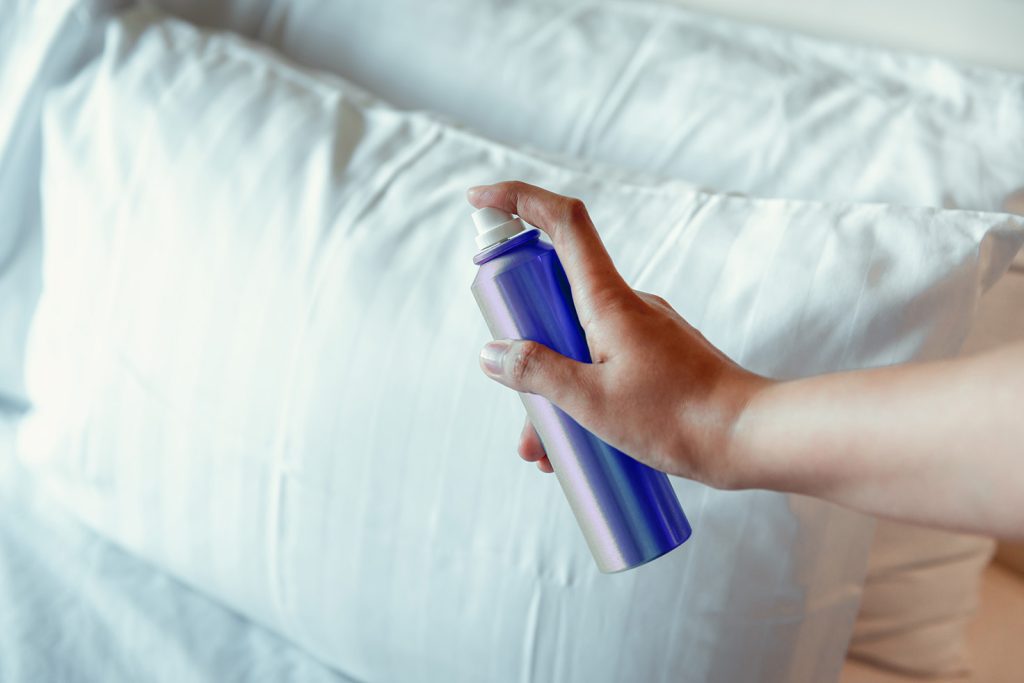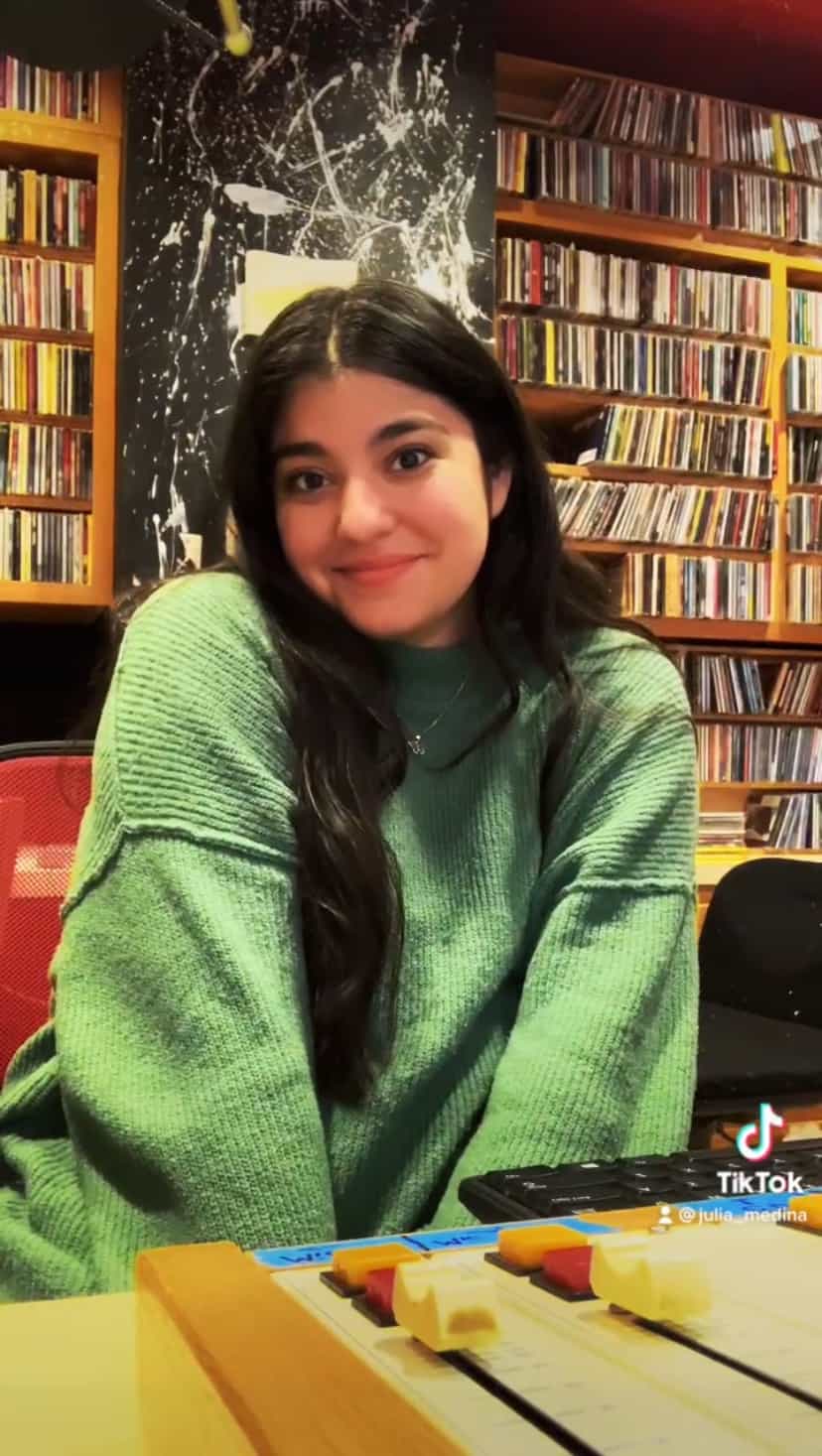
Children are taking melatonin supplements now more than ever before. According to the American Academy of Sleep Medicine (AASM), “melatonin is the second-most popular “natural” product that parents give to their children, next to multivitamins,” and a June 2022 study reported a 530 percent spike in annual melatonin ingestions in kids between 2012 and 2021.
While melatonin supplements aren’t regulated by the FDA, they have become a commonly accepted sleep aid. They’re generally considered safe for adults, but the verdict is still out on whether they’re beneficial for kids. However, they seem to only be growing trendier. The most recent melatonin product to spike in popularity? Melatonin sprays, many of which are geared toward kids.
What is a Melatonin Spray?
Melatonin spray is similar to a pillow spray in that they’re supposed to provide a calming environment for sleep. Some sprays are scented with lavender, eucalyptus, or chamomile to help put the mind at ease.
Reviews from online users range from “great substitute for melatonin pills” to “not worth the buy.” Unlike physical melatonin supplements, there is little to no research determining the effectiveness and safety of melatonin sprays.
Sleepopolis interviewed two experts, Dr. Stan Spinner, the chief medical officer and vice president for Texas Children’s Pediatrics and Texas Children’s Urgent Care, and Dr. Shelby Harris, Sleepopolis’ director of sleep health, to understand the relationship between melatonin and kids to understand if melatonin sprays work.
Why Children are Taking Melatonin
Raise your hand if you didn’t develop any sleep problems during the pandemic (and if you didn’t, tell us your secrets!). Like many adults, kids have had their schedules and entire lives upended over the past two years, Harris points out. Unsurprisingly, this has been associated with increased stress, anxiety, and depression. Because of this, “kids are having sleep problems more than ever before,” she adds.
Is Melatonin Safe for Kids?
While there can be benefits to using a melatonin product, both Spinner and Harris outline some potential negatives as well.
Melatonin can provide short-term regulation during traveling to different time zones and in children with certain medical conditions, Spinner explained.
However, “Melatonin is a hormone, and may interact in harmful ways with some medications, as well as with other naturally occurring hormones in our bodies,” he adds. “In addition, we do not know whether there may be any long-term consequences of melatonin in either adults or children, as there have been few appropriate studies on the benefits vs the consequences of melatonin in children.”
Harris recommends first trying behavioral interventions to help your kid sleep better. If that doesn’t work, consult with a pediatrician on how to safely use melatonin.
There are some kids for whom it could be a good fit, according to Harris. “We use it routinely – in tiny doses – in patients who are night owls and sleep late in the morning (often seen in preteens and teens),” she says. “And we use melatonin more regularly in kids with ADHD and autism, as there’s the most research supporting its use there.”
So…Does Melatonin Spray Actually Work?
While it appears searches for this product are trending upward (as of this writing, searches for “melatonin spray for kids” have increased by 50 percent in the past seven days, according to Google Trends), it’s still an uncommon product.
“I have never actually recommended them! I can imagine with a child who is very developmentally challenged or who struggles with ingesting a gummy it might be useful to some small degree, but this is all speculation,” Harris tells Sleepopolis.
As for their effectiveness, Spinner notes that there’s been even less research done on melatonin sprays than there is on general melatonin. There’s little data on, “how much is absorbed and is that amount affected by various conditions such as materials the child is sleeping on or wearing.”
Basically: There’s no evidence one way or another to suggest they work or are harmful. Subsequently, experts don’t really recommend them.
How to Help Your Kids Fall Asleep
While melatonin supplements have become a common method in aiding kids’ sleep, Spinner and Harris outlined some ways that may help without the use of melatonin.
- Create a consistent bedtime routine. Both doctors recommend this as the first step in helping a child sleep better at night. Harris emphasized the importance of a consistent bed and wake time, including a child’s nap routine/schedule so they’re not going to bed overtired.
- Find soothing activities before bed. “Allow some down time prior to going to sleep, such as reading a book and avoid activities that tend to stimulate the child prior to bedtime,” Spinner suggests.
- Eliminate any light source from the room. By creating a dark and cool environment, Spinner explains it can aid in children falling asleep faster, while also helping them to stay asleep.
If after two to four weeks, nothing has changed with consistent routines, Harris recommends talking with your child’s doctor.
Lastly, “Please remember that the word ‘natural’ on any product is absolutely no guarantee of effectiveness or safety,” Spinner says. When in doubt, talk to your child’s pediatrician about any health concerns and before starting them on any kind of supplemental regime.



























